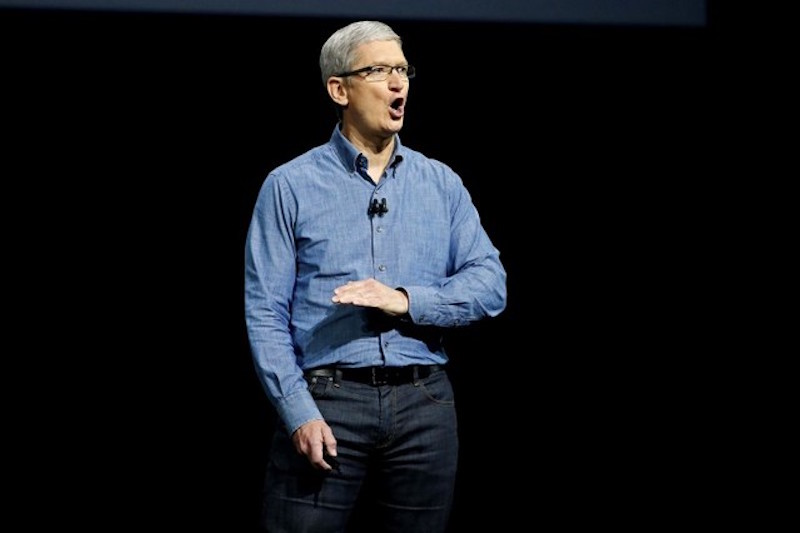
All tech companies face a constant demand to innovate while also producing huge profits and sales growth. That means that Apple, the world’s largest company, is also one of the few that can post a $13.6 billion (roughly Rs. 91,079 crores) profit and still miss expectations because the product it’s sold a billion of isn’t selling quite as well as it once did.
Those sounding the alarm bells over Apple point to a few factors, chief among them that the smartphone market is slowing down and growing “saturated” – a term analysts use when they want to say that most people interested in buying a new smartphone probably have one already. For Apple, which makes nearly two-thirds of its revenue from the iPhone, it looks like that could be a big problem.
Of course, Apple chief executive Tim Cook is aware of this. It doesn’t really bother him.
“This is actually a privilege, not a problem,” Cook said in an interview with The Washington Post.
Talk about turning lemons into lemonade and bugs into features. Cook’s optimism – some might say denial – is not particularly popular, even among devoted Apple watchers. Some are even saying that Apple’s crested the peak and is on its way back down.
(Also see: The Privacy Debate Is Personal to Tim Cook)
The bears continued to roar after the company reported that its revenue had dropped from the previous year for the second quarter in the row. That just doesn’t happen at Apple, or at least not at the Apple we’ve come to know in the past decade.
Yet even that doesn’t seem to faze Cook. “I realize that the people who are focused on this 90-day clock say, ‘Oh, my God, the smartphone industry only grew by 1 percent or decreased by 6 percent.’ You know, the global economy’s not that great right now,” Cook told my Post colleague Jena McGregor. “But if you’re in it for the long haul, this is the best market on earth.”
He believes that, over time, “every person in the world will have a smartphone.” And he’s willing to wait for it.
In that way, Cook is an outlier in a go-go-go tech world. His accomplishments are on a long-term scale. They take investment. They’re about refinement, about maturity. As chief operating officer, Cook was credited with what some could arguably call Apple’s greatest but most boring accomplishment – the massive manufacturing and distribution chains that made it a household name in Beijing, Baltimore and everywhere in between.
So Cook’s ears are closed to the criticism Apple gets for not being as flashy or open about its moonshots as its competitors. Google, Microsoft, Amazon and Facebook, for instance, are all very vocal about the spaghetti they throw at the wall. Sure, Apple may try a wearable here or a cheaper smartphone there, but it’s not running headlong into anything.
“Technology is one of these industries where every week there’s a new shiny object that people are skating to,” Cook told The Post.
Further, he said, “Regardless of who you are, there’s only so many things that you can do at a very high-quality and deep, deep level – personally and in business. And so we’re not going to change that. That’s core to our model and way of thinking.”
There’s a touch of (dare we say?) Jobsian hubris in that. But it does speak to Cook’s own brand of innovation, which is in setting foundations rather than breaking ground. He cements success. It’s no coincidence that, as Apple’s hardware divisions see slower growth on the horizon, its services division is seeing more investment. In Cook’s mind, the addressable market for the iPhone is 7 billion – and he knows those people will constantly need things to watch, listen and do on their phones.
That’s great for a company that’s looking for stability. It’s great for a firm making sure it has enough money to stoke the future flames in research and development, which has grown under Cook’s watch.
But the slow innovation philosophy can be hard to jell with a company vocabulary and culture that’s steeped in superlative. So much of Apple’s appeal has been due to its dramatic history, its deep lows that made its highs all the more breathtaking. The truth is that Tim Cook could probably keep Apple humming along forever. The question is whether the rest of the world can ever accept an Apple that isn’t run by one of the crazy ones.
© 2016 The Washington Post
[“Source-Gadgets”]
 Techosta Where Tech Starts From
Techosta Where Tech Starts From